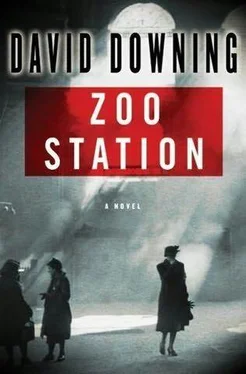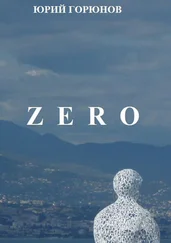David Downing - Zero Station
Здесь есть возможность читать онлайн «David Downing - Zero Station» весь текст электронной книги совершенно бесплатно (целиком полную версию без сокращений). В некоторых случаях можно слушать аудио, скачать через торрент в формате fb2 и присутствует краткое содержание. Жанр: Шпионский детектив, на английском языке. Описание произведения, (предисловие) а так же отзывы посетителей доступны на портале библиотеки ЛибКат.
- Название:Zero Station
- Автор:
- Жанр:
- Год:неизвестен
- ISBN:нет данных
- Рейтинг книги:5 / 5. Голосов: 1
-
Избранное:Добавить в избранное
- Отзывы:
-
Ваша оценка:
- 100
- 1
- 2
- 3
- 4
- 5
Zero Station: краткое содержание, описание и аннотация
Предлагаем к чтению аннотацию, описание, краткое содержание или предисловие (зависит от того, что написал сам автор книги «Zero Station»). Если вы не нашли необходимую информацию о книге — напишите в комментариях, мы постараемся отыскать её.
Zero Station — читать онлайн бесплатно полную книгу (весь текст) целиком
Ниже представлен текст книги, разбитый по страницам. Система сохранения места последней прочитанной страницы, позволяет с удобством читать онлайн бесплатно книгу «Zero Station», без необходимости каждый раз заново искать на чём Вы остановились. Поставьте закладку, и сможете в любой момент перейти на страницу, на которой закончили чтение.
Интервал:
Закладка:
The road was climbing now, the sky almost cloudless. Around ten kilometers from Gцrlitz Russell found the stopping place he had been looking for, a wide graveled ledge overlooking a pretty river. Eager to stretch, they both got out, and Russell ran through the arranged script for the Gцrlitz buffet. “Once you are in Prague, the first thing you must do-the first thing-is to telephone me. Your mother won’t leave Germany until she knows you’re safe.”
“You haven’t given me the number,” Albert said sensibly.
Russell made him repeat it several times, wondering as he did so-and hating himself for it-how long the boy would resist a Gestapo interrogation.
Albert seemed to know what he was thinking. “I won’t give you up,” he said simply.
“None of us know what we’ll do in a situation like that.”
“I won’t get into a situation like that,” Albert said, pulling a grubby-looking Luger from his coat pocket.
Oh shit, Russell thought, glancing left and right in search of approaching traffic and barking “Put it away!” The road was blissfully empty. “That’s…” he started to say, and stopped himself. What right did he have to give the boy advice? Albert had been in Sachsenhausen once, and his father had died there. It wasn’t hard to see why going out in a blaze of gunfire seemed preferable to going back.
He breathed out slowly. “You have to leave the coat with me,” he said. “Won’t the gun be obvious in your jacket pocket?”
“I’ll put it in my belt,” Albert said, and did so. He then took the coat off and offered Russell a 360-degree turn, like a model at a fashion show. The gun didn’t show.
Back in the car, Albert pulled a workingmen’s cap from a pocket of the discarded coat, and Russell reached into the KaDeWe bag for the blue scarf. “The recognition signal,” he explained, and Albert wrapped it around his neck, reminding Russell of Paul on a skating trip.
They drove on, the sky a deepening blue as dusk approached, the mountains slowly creeping above the southern horizon. As they reached the outskirts of Gцrlitz it occurred to Russell that anyone with a brain would have studied a plan of the town-the last thing he wanted to do was ask directions to the station. Go to the town center and look for signs, he told himself. The Germans were good at signs.
He picked up some tram tracks and followed them in what seemed the obvious direction. After passing several large industrial concerns, the road narrowed through a handsome arch and arrived at a wide street full of old buildings. There were theaters, statues, a large water fountain-in any other circumstances, Gцrlitz would be worth an afternoon stroll.
“There!” Albert said, indicating a sign to the station.
They drove down a long straight street, toward what looked like a station. It was. The station building was about a hundred meters long, the entrance to the booking hall right in the center. There were lighted windows to the left of this entrance, and steam billowing out of two large vents.
Russell pulled the car to a halt behind a Reichsbahn parcels truck. “The buffet,” he said, pointing it out. “There’ll be an entrance from the booking hall.”
It was ten to five.
Albert just sat there for a few seconds, then turned to shake Russell’s hand.
The boy looked nervous now, Russell thought. “Safe journey,” he said.
Albert climbed out and, without a backward look, headed toward the entrance. There was nothing furtive about his stride-if anything it was too upright. He leapt up the two steps and in through the doorway.
Start driving, Russell told himself, but he didn’t. He sat there watching as the minutes passed. Two men in SA uniform emerged, laughing at something. A man ran in, presumably late for a train. Only seconds later a spasm of chuffs settled into the accelerating rhythm of a departing engine.
He imagined Albert sitting there, and wondered whether he’d tried to buy a coffee. If he had, he might have been refused; if he hadn’t, some power-mad waiter might have tried to move him on. He imagined a challenge, the gun pulled out, the sound of shots and a frantic Albert flying out through the doorway. Russell wondered what he would do. Pick him up? Race out of Gцrlitz with the police in hot pursuit? What else could he do? His mouth was suddenly dry.
And then Albert did come out. There was another man with him, a shortish man in his forties with graying hair and a very red nose, who shifted his head from side to side like an animal sniffing for danger. The two of them walked across to the small open truck with a timber load which Russell had already noticed, and swung themselves up into their respective cab seats. The engine burst into life and the truck set off down the street, leaving a bright tail of exhaust hanging in the cold evening air.
Left Luggage
After leaving gцrlitz, Russell took the next available chance to telephone Effi. A brass band was practicing in the first bar he tried, but with receiver and hand clamped tight against his ears he could just about hear the relief in her voice. “I’ll be waiting,” she said.
He chose the autobahn north from Kottbus, hoping to speed the journey, but an overturned vehicle in a military convoy had the opposite effect. By the time he reached Friedrichshain it was almost nine o’clock. Frau Wiesner could hardly have opened the door any faster if she’d been waiting with her hand on the knob.
“He was collected,” Russell said, and her lips formed a defiant little smile.
“Sit down, sit down,” she said, eyes shining. “I must just tell the girls.”
Russell did as he was told, noticing the bags of clothing piled against one wall. To be given away, he supposed-there was no way they would be allowed to take that much with them. He wondered if the Wiesners had any more valuables to take out, or whether the bulk of the family assets had been concealed behind the stickers in Achievements of the Third Reich. It occurred to him that Germany’s Jews had several years’ experience in the art of slipping things across the German border.
“And my visa has arrived,” Frau Wiesner said, coming back into the room. “By special courier from the British Embassy this afternoon. You must have some influential friends.”
“I think you do,” Russell told her. “I’m sure Doug Conway had a hand in it,” he explained, somewhat untruthfully. There seemed no reason for her to know about his deals with Irina Borskaya and Trelawney-Smythe. “But there is something you might be able to do for me,” he added, and told her what he wanted. She said she would ask around.
He left her with a promise to drive over the moment Albert phoned, and a plea not to worry if the wait lasted more than a day. If they still hadn’t heard anything by Thursday he knew she’d be reluctant to leave, even though they both knew that in this context no news was almost certain to be bad news.
On the other side of the city, Effi welcomed him with an intense embrace, and insisted on hearing every detail. Later, as they were going to bed, Russell noticed a new film script on the dressing table and asked her about it. It was a comedy, she told him. “Twenty-three lines, four come-on smiles, and no jokes. The men got those.” But at least it was pointless, a quality which Mother had taught her to admire.
The next morning, Russell left her propped up in bed happily declaiming her lines to an empty room, and drove home to Neuenburgerstrasse. There was no sign of Frau Heidegger, and no messages on the board, from either Albert or the Gestapo. He went up to his room and read the newspaper, his door propped open in case the phone rang. Jews had been forbidden from using either sleeping or restaurant cars on the Reichsbahn, on the grounds, no doubt, that they would appreciate their hunger more if they were kept awake.
Читать дальшеИнтервал:
Закладка:
Похожие книги на «Zero Station»
Представляем Вашему вниманию похожие книги на «Zero Station» списком для выбора. Мы отобрали схожую по названию и смыслу литературу в надежде предоставить читателям больше вариантов отыскать новые, интересные, ещё непрочитанные произведения.
Обсуждение, отзывы о книге «Zero Station» и просто собственные мнения читателей. Оставьте ваши комментарии, напишите, что Вы думаете о произведении, его смысле или главных героях. Укажите что конкретно понравилось, а что нет, и почему Вы так считаете.












